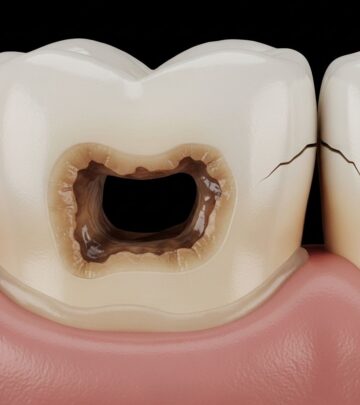Cognitive Behavioural Therapy (CBT): How It Works, Benefits, and What to Expect
A thorough guide to understanding Cognitive Behavioural Therapy (CBT)—what it is, how it works, who it helps, and what to expect from treatment.

Cognitive Behavioural Therapy (CBT) is a widely used talking therapy shown to be effective in treating a range of common mental health problems, including depression and anxiety disorders. This comprehensive guide covers key information about what CBT is, how it works, who can benefit, and how to access this therapy through the NHS or privately.
What is Cognitive Behavioural Therapy (CBT)?
CBT is a type of evidence-based talking therapy that aims to help individuals manage their problems by changing unhelpful ways of thinking and behaving. CBT is based on the principle that our thoughts, feelings, physical sensations, and actions are interconnected—by changing the way you think and behave, you can affect the way you feel and cope with difficulties more effectively.
- Cognitive refers to examining the things you think.
- Behavioural involves working on the things you do.
CBT helps break the cycle of negative thinking and unhelpful behaviours which can contribute to mental health problems.
How Does CBT Work?
CBT works by helping people become aware of and challenge patterns of negative thinking and behaviour. It provides practical tools for coping with life’s difficulties and changing the responses to challenging situations.
- When upset, people can develop cycles of negative thoughts and behaviours that reinforce feelings of distress.
- For example, someone with depression may withdraw from friends due to beliefs of being unworthy, reinforcing their low mood.
- CBT aims to break these cycles through structured techniques and exercises.
The CBT Model
CBT integrates two key approaches:
- Cognitive Therapy: Focuses on identifying and challenging unhelpful thoughts and beliefs.
- Behavioural Therapy: Encourages more helpful actions and responses to situations.
By working together with a therapist, individuals learn how their thoughts influence their emotions and behaviours, and vice versa. Practical exercises help develop new, more helpful methods of coping.
What Conditions Can CBT Help With?
CBT has substantial evidence supporting its effectiveness. It’s recommended as a first-line treatment for many mental health problems, particularly:
- Depression
- Anxiety disorders (including Generalized Anxiety Disorder, social anxiety, panic disorder, and specific phobias)
- Obsessive Compulsive Disorder (OCD)
- Post-Traumatic Stress Disorder (PTSD)
- Eating disorders
- Sleep problems and insomnia
- Some physical health problems (e.g., managing chronic pain, irritable bowel syndrome (IBS), and other long-term health conditions)
While CBT cannot cure the physical symptoms of chronic health conditions, it can help improve coping and emotional wellbeing for those living with long-term physical health issues.
Who Can Benefit from CBT?
CBT is suitable for people of all ages, including children, adolescents, and adults. It’s particularly helpful if you:
- Are experiencing persistent depression, anxiety, or distress
- Find it difficult to manage certain emotions or behaviours
- Want a practical, short-term therapy focused on the present and making positive changes
However, CBT may not be suitable or helpful for everyone. Individuals with complex mental health needs, cognitive impairments, or those in crisis may benefit more from other forms of therapy or additional treatments.
What Happens During CBT Sessions?
CBT is usually delivered in a structured format over a set number of sessions—commonly 6 to 20 weekly or fortnightly sessions, each lasting between 30 and 60 minutes.
Structure of CBT Sessions
- Assessment and Goal Setting: Early sessions focus on assessing your current challenges, how they connect (via thoughts, feelings, behaviours, and physical sensations), and establishing shared goals between you and your therapist.
- Developing a Formulation: Together with your therapist, you build a ‘formulation’—a shared understanding of how your problems are maintained, often called a ‘vicious cycle’.
- Techniques and Exercises: Sessions may involve:
- Exploring and challenging unhelpful thoughts
- Developing alternative, balanced thinking
- Behavioral experiments (e.g., trying new ways to respond to situations)
- Gradually facing avoided situations or activities
- Homework: You’ll often agree on ‘between-session tasks’, such as keeping a thought diary, practicing new coping strategies, or working on specific activities relevant to your goals.
- Review and Reflection: Each session typically includes reviewing progress, discussing successes or setbacks, and planning next steps.
Outside the Therapy Room
CBT places a strong emphasis on practicing skills outside sessions. Homework is integral to consolidating learning and embedding new habits. Examples include:
- Completing worksheets focused on your thoughts, feelings, and behaviours
- Trying out new activities or coping strategies in real-life situations
- Keeping a diary to spot patterns and triggers
At the end of a course of CBT, you and your therapist will create a personalised ‘staying well plan’ to help you maintain your progress long-term.
Types of CBT Delivery
CBT can be adapted to suit individual preferences and circumstances. It may be delivered in several different formats, including:
- Face-to-face or in-person with a qualified therapist
- Online CBT (digital platforms and video sessions)
- Telephone therapy
- Group CBT sessions
- Guided self-help (with support from a therapist)
- Self-help books and online programmes for mild to moderate symptoms
The choice of format may depend on your needs, local NHS services, and preferences. Evidence shows that online and remote CBT can be as effective as face-to-face therapy in many cases.
Advantages and Limitations of CBT
| Advantages of CBT | Limitations of CBT |
|---|---|
|
|
How Effective is CBT?
CBT is one of the most researched forms of psychological therapy, with a substantial evidence base for its effectiveness:
- Recommended by the NHS and National Institute for Health and Care Excellence (NICE) for depression and most anxiety disorders
- Can lead to significant improvements in mood and daily functioning
- Not everyone finds CBT helpful—its effectiveness may depend on individual preferences and the specific nature of the problem
CBT is often combined with medication for certain conditions (such as moderate to severe depression), but can also be used on its own.
What if CBT Doesn’t Help?
CBT works well for many, but not all, people. If it isn’t helping:
- Speak to your therapist about alternative approaches or whether more time might be helpful.
- Consider whether another form of therapy, such as counselling, psychotherapy, or another talking therapy, may suit you better.
- Your GP or mental health service can provide guidance about next steps.
Don’t hesitate to discuss your concerns—you deserve a treatment approach that works for you.
Accessing CBT: NHS and Private Options
There are various routes to accessing CBT in the UK:
- Self-Referral: In many NHS areas, you can refer yourself directly to an NHS talking therapy service without a GP referral. Search online for “NHS talking therapies” in your area.
- GP Referral: Your GP can refer you to local NHS mental health services. This may be necessary for more complex needs.
- Private Therapy: You can choose to see a private therapist. Costs vary. Ensure your therapist is properly accredited (look for BABCP accreditation or similar).
- Online Programmes: Access to guided self-help, digital CBT programmes, and apps is increasingly common through the NHS or privately.
What to Expect When Seeking CBT
- Initial assessment to understand your needs and suitability for CBT
- Explanation of the therapy process and what commitment is required
- Agreed set number of sessions and review points
Waiting times for NHS therapy can vary depending on your area, service demand, and urgency. Private therapy may be immediate but at additional cost.
Preparing for CBT: Tips for Success
- Be open and honest about your thoughts, feelings, and experiences
- Commit to attending regular sessions and completing homework tasks
- Track your progress and reflect on changes week by week
- Ask questions if you’re unsure about any aspect of therapy
- Remember: change is a gradual process; persistence is key
Real Stories: CBT in Action
“CBT helped me gain insight and perspective… it reintroduced structure to my life when I’d given up.”
“Excellent service! My therapist made me feel at ease and taught me valuable skills to improve my quality of life.”
“I learned to challenge my insecurities and worries, and now feel confident to move forward.”
Frequently Asked Questions (FAQs)
Q: What makes CBT different from other talking therapies?
A: CBT focuses on the present and teaches practical skills to change thoughts and behaviours. Unlike some therapies, it does not dwell extensively on past events but may consider their influence on current patterns.
Q: How long does CBT take?
A: Standard CBT courses last between 6 and 20 sessions depending on individual need, with each session usually lasting 30 to 60 minutes.
Q: Can I do CBT by myself?
A: Mild to moderate symptoms may improve using self-help CBT books or online tools—these are increasingly available through the NHS. However, guidance from a trained therapist can help you get the most from CBT.
Q: Is CBT effective for everyone?
A: While CBT is effective for many people, some may find it less helpful. Other therapies or interventions may be more suitable for certain individuals or conditions.
Q: Does CBT involve medication?
A: CBT does not involve medication, but it can be combined with medication if advised by your doctor, especially in cases of more severe depression or mental health needs.
Further Resources
- British Association for Behavioural and Cognitive Psychotherapies (BABCP)
- Your local NHS talking therapies service
- Mental health charities providing online resources, workshops, and reading materials
If you are in distress or crisis, contact emergency services, your GP, or a mental health helpline immediately.
Read full bio of medha deb












